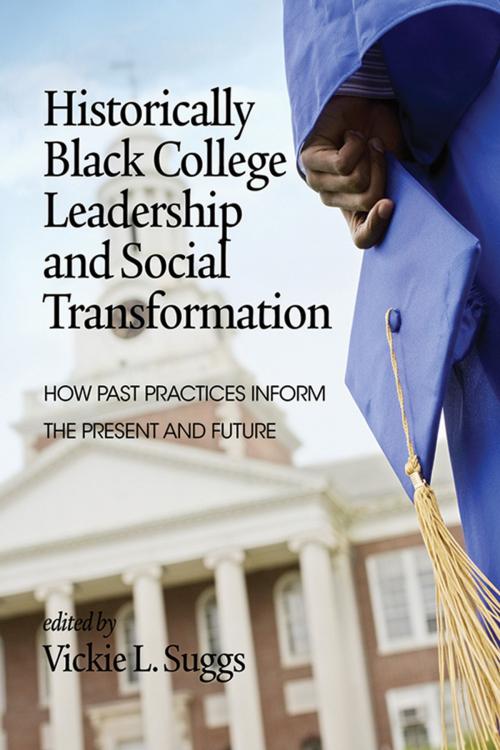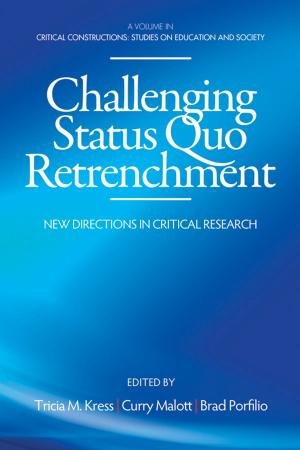Historically Black College Leadership & Social Transformation
How Past Practices Inform the Present and Future
Nonfiction, Reference & Language, Education & Teaching, Higher Education, Social & Cultural Studies, Social Science, Cultural Studies, African-American Studies| Author: | ISBN: | 9781623964597 | |
| Publisher: | Information Age Publishing | Publication: | January 1, 2014 |
| Imprint: | Information Age Publishing | Language: | English |
| Author: | |
| ISBN: | 9781623964597 |
| Publisher: | Information Age Publishing |
| Publication: | January 1, 2014 |
| Imprint: | Information Age Publishing |
| Language: | English |
Historically Black College Leadership & Social Transformation Little research has been conducted to identify aspects of effective social transformation leadership in American college and university leadership. The authors of this book argue that while much less has been done at predominantly White institutions to practically apply the processes of social transformation as a leadership model, HBCUs have historically relied upon strategies of social transformation as they sought to build and sustain the distinct mission of their institutions that enhance college access, inclusion, and choice. This publication is intended to serve as a departure from the examination of the typology of transformation leadership in the private sector and, instead, view this leadership model through the lens of higher education. The authors’ intent is to focus on institutional leadership at historically Black colleges and universities (HBCUs) and provide a deeper understanding of the Social Change Model and how it can be successfully situated as a conduit for realizing and sustaining the mission of Black colleges from perspectives of the past, present, and future.
Historically Black College Leadership & Social Transformation Little research has been conducted to identify aspects of effective social transformation leadership in American college and university leadership. The authors of this book argue that while much less has been done at predominantly White institutions to practically apply the processes of social transformation as a leadership model, HBCUs have historically relied upon strategies of social transformation as they sought to build and sustain the distinct mission of their institutions that enhance college access, inclusion, and choice. This publication is intended to serve as a departure from the examination of the typology of transformation leadership in the private sector and, instead, view this leadership model through the lens of higher education. The authors’ intent is to focus on institutional leadership at historically Black colleges and universities (HBCUs) and provide a deeper understanding of the Social Change Model and how it can be successfully situated as a conduit for realizing and sustaining the mission of Black colleges from perspectives of the past, present, and future.















